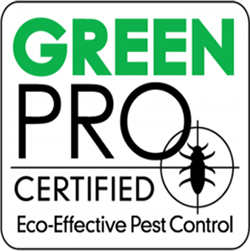5 Tips to Prevent Wasps and Bees Naturally
When the warm weather starts, certain insects are bound to make their presence known. Bees and wasps do serve a purpose as pollinators so it's a good idea to prevent them with natural methods and by being proactive. Let's examine some ways to do this.

1) Grow insect-repelling herbs and plants. There are quite a few plants and herbs that naturally repel insects. Lemongrass, geranium, citronella, and basil are just a few that can help to deter wasps and bees. Plant a variety of these insect-repelling plants around your patio and any outdoor areas you frequent. If you do have pets or children be aware that some plants can be harmful if ingested so be sure to do research first.
2) Keep trash and any food scraps undercover. Insects are drawn to household trash and especially food waste. Yellowjackets in particular will swarm wherever they can find an uncovered trash can or sweet beverages left unattended. Simply make it a point to dispose of any trash immediately, keep all trash receptacles covered, and clean and empty them regularly.
3) Stock up on citronella candles, spray, and oils. Citronella oil is an essential oil derived from the leaves and stems of different species of Cymbopogon, an Asian plant. Although it has many uses, the most popular use for citronella is as an ingredient in homemade or commercially made bug sprays, since it naturally repels various insects. It can be applied topically as a spray, or you can find it in products, such as candles. Products made from its oil can be burned to emit a scent that repels many insects, including bees and wasps.
4) Use wasp traps. Store-bought and DIY traps can work well to catch wasps. Once they enter the trap they are stuck in it and usually will not make it back out. Check into the ones that are made to catch wasps specifically while leaving bees unharmed. These traps can be very effective and are easy to safely dispose of resulting in them being a convenient way to tackle wasp infestations without harming other insects such as honey bees.
5) Practice preventative home maintenance.. Bees and wasps can be very creative with where they decide to nest and lay their eggs. Depending on the species they can seek out areas under decks, under handrails on porches, in yard debris piles, and even in walls of structures. Some proactive steps will go a long way to prevent an unfortunate run-in resulting in a painful sting.
Check these areas and if you see a nest, take caution. Bees and wasps can be very aggressive when they feel their nests are threatened. It can be near impossible to safely remove them without proper equipment therefore requiring professional removal by a pest control technician.
Spence’s Pest Control has the experience to effectively and safely handle your pest problems. We can even relocate bee hives to help preserve the essential pollinators. Contact us at (804) 794-7738.












